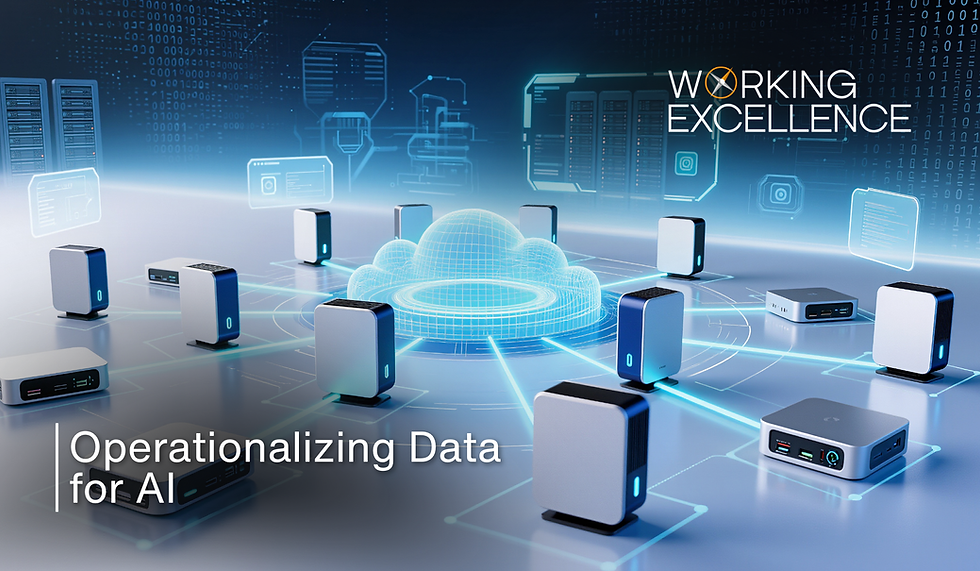Generative AI Revolutionizes Healthcare and Drug Safety
- Jerry Garcia

- Nov 27, 2024
- 3 min read
In a groundbreaking meeting, the FDA's Digital Health Advisory Committee (DHAC) convened to discuss the implications of generative AI (GenAI) in healthcare, particularly focusing on its role in drug safety and medical devices. The two-day event highlighted the potential benefits and challenges of integrating GenAI into pharmacovigilance and regulatory frameworks.
Key Takeaways
Generative AI is transforming pharmacovigilance by enhancing real-time signal detection and automating reporting processes.
The FDA is adopting a Total Product Life Cycle (TPLC) strategy to oversee GenAI-enabled medical devices.
Ethical considerations, including data privacy and algorithm transparency, are critical in the deployment of GenAI in healthcare.
The Role of Generative AI in Pharmacovigilance
Generative AI is reshaping the landscape of pharmacovigilance, which is essential for monitoring drug safety throughout a product's lifecycle. Traditional methods often struggle with data overload and delayed signal detection. GenAI addresses these issues by:
Real-Time Signal Detection: GenAI continuously analyzes data from various sources, including social media and electronic health records, to identify safety signals promptly.
Automated Reporting: By automating the aggregation of safety data, GenAI reduces human error and enhances the accuracy of reports, such as Periodic Safety Update Reports (PSURs).
Enhanced Surveillance: Continuous monitoring of real-world data allows for the identification of long-term or rare adverse effects that may not be evident during clinical trials.
Predictive Risk Modeling: GenAI can analyze patient data to identify factors that increase the risk of adverse reactions, enabling personalized safety assessments.
FDA's Approach to Regulating Generative AI
The FDA's DHAC meeting underscored the agency's commitment to a TPLC strategy for GenAI-enabled medical devices. Key points discussed included:
Performance Evaluation: The committee emphasized the need for a multi-dimensional framework to assess the correctness and effectiveness of AI models.
Risk Management: Identifying potential harms and risks associated with GenAI devices is crucial for ensuring patient safety.
Postmarket Monitoring: The FDA aims to establish automated processes for evaluating device performance after deployment, ensuring ongoing safety and efficacy.
Ethical Considerations in Generative AI Deployment
As generative AI becomes more integrated into healthcare, ethical considerations must be prioritized:
Data Privacy: Protecting sensitive patient information is paramount, necessitating secure data handling and anonymization practices.
Algorithm Transparency: Ensuring that AI-generated safety signals are interpretable is essential for building trust among stakeholders.
Regulatory Compliance: Clear guidelines are needed to define the responsibilities of AI developers and healthcare professionals in the context of AI-driven assessments.
The Future of Generative AI in Healthcare
Looking ahead, the potential of generative AI in healthcare is vast. As AI models evolve, they may incorporate emerging technologies like blockchain and the Internet of Things (IoT) to enhance data security and enable continuous monitoring. Collaboration among pharmaceutical companies, regulatory bodies, and healthcare providers will be essential to maximize the impact of GenAI on drug safety and patient health.
In conclusion, the integration of generative AI into healthcare and drug safety represents a significant advancement in pharmacovigilance practices. By enabling real-time monitoring and personalized assessments, GenAI has the potential to improve patient outcomes and ensure the safety and efficacy of medications. However, addressing ethical concerns and establishing robust regulatory frameworks will be crucial for realizing its full potential.
Sources
Transforming pharmacovigilance: The revolutionary impact of generative AI on drug safety | pharmaphorum, Pharmaphorum.
FDA taking the long view of generative AI in healthcare, AI in Healthcare.
FDA advisory committee to roll up sleeves on generative AI, FierceHealthcare.
New FDA Panel Weighs In on Regulating Generative AI in Healthcare | MedPage Today, MedPage Today.



